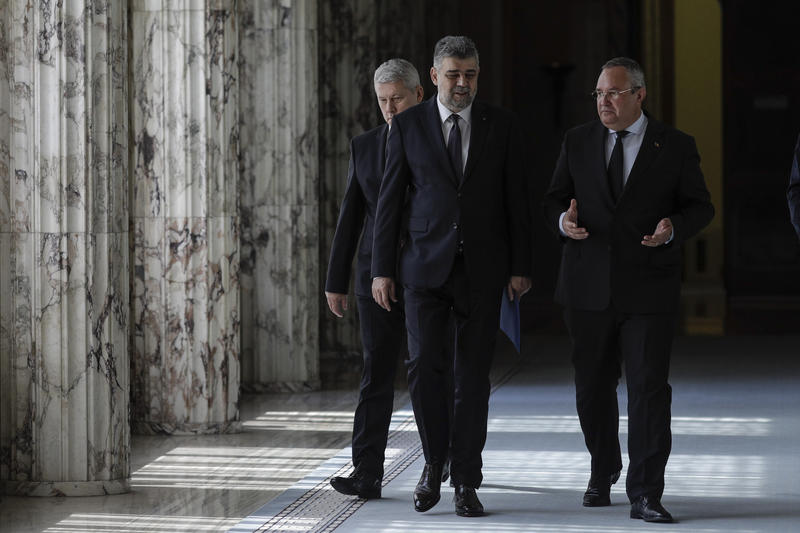The Government of Alberto Fernández received a severe blow on Tuesday, given that the inflation index published by INDEC shows a new acceleration in prices. Official information confirmed that inflation was 6.6% in February, a figure even worse than that of January (6%) and a bucket of cold water after the inflationary slowdown that had been seen in November (4,9%) y December (5,1%).
In addition, prices accumulate an advance of 13.1% so far in 2023.
With the new index known today, it was confirmed that inflation for the last 12 months reached 102.5%. This data is the worst that has been recorded since 1992, thirty years ago, when in January the accumulated annual figure had been 76%.
Closer in time, during the presidency of Mauricio Macri, in May 2019 year-on-year inflation reached a peak of 57.3%.
The inflation data of 6.6% in February complicates the disinflation plans of the Minister of Economy, Sergio Massa, who would have estimated a CPI below 4% for the month of April. Likewise, it is above the forecasts of the consultants, who had forecast a figure of 6.1% in the latest BCRA survey.
February confirms a strong inflationary rebound.
Prices: the main increases in February
The division with the highest increase in the month was Food and non-alcoholic beverages (9,8%), mainly due to the impact of the rise in Meat and derivatives and Milk, dairy products and eggs.
The next divisions with the highest increases were Communication (7.8%), which was affected by the rise in telephone and internet services, and Restaurants and hotels (7.5%), due to the increases in Restaurants and meals outside the home. Also notable in the period was the increase in: prepaid premiums, which had an impact on Health (5.3%); cigarettes, in Alcoholic beverages and tobacco (5.2%); fuels, within Transportation (4.9%); and electricity and water services in some regions, in Housing, water, electricity and other fuels (4.8%).
The increase in Food and non-alcoholic beverages (9.8%) had the greatest impact in all regions. Within the division, it stood out mainly the rise of Meats and derivatives. In turn, although to a lesser extent, the rises in Milk, dairy products and eggs stood out; and in Fruits, for seasonal reasons.
The two divisions with the least variation in February were Clothing and footwear (3,9%) y Education (3,2%).
At the category level, the Core CPI led the increase (7.7%), followed by Regulated (5.1%), while Seasonal registered an increase of 3.3%.

Food prices skyrocketed in February.
March, with hot prices
The inflationary dynamics in the food sector it does not loosen: the beginning of March shows rises well above the level expected by the Government. This is what they are indicating latest surveys of the consultancies specialized in the monitoring of the prices in that sector.
The latest report on the issue was made by the Eco Go consultancy: it marked an average rise of 1.8% in the first week of the month, but with a projection of 7.2% for this month of March.
For the direct consultant for the economist Marina Dal Poggetto, inflation this month would climb to 6.4%. For now, in line with the inflation expectation for February, which INDEC will disclose in the coming days.
In this way, the inflation of food during the first quarter would exceed 20%a level never seen during the Fernández administration.
Bovine meat, with a rise of 2.9%, is one of the segments leading the increases. On average, the rise in meat rounds off 2.1% in one week. This trend highlights what has been known since the beginning of the year.
Just as meat “served” to cool down the inflationary dynamics over the past year (in 2022, meat became 62% more expensive; 33 points below the CPI), now the opposite is happening.

The inflationary dynamics in food does not loosen: the beginning of March reports rises well above expectations
The rise in beef in the last four weeks was 9.7%according to the Eco Go survey.
Companies evade controls
Some basic products such as noodles, flour, rice and cookies show average increases of 6%, except for those brands that companies deliver directly to supermarkets. There are also 7% average increases in non-alcoholic beverages.
In cookies, the most important companies sent lists with increases of between 8% and 10%.
All these adjustments will begin to be seen in the gondolas starting this week that has just begun.
In this context, the consultants that respond to the REM of the Central Bank estimated that inflation this month will reach 6.3%, above the 6.0% of last February and January.
In the case of the consultancy LCG, which monitor inflation week after week, the measurement for the last four weeks marked 6.8% in the exclusive case of food.
Others, such as the one led by Orlando Ferreres, pointed to 9% inflation for food in February. A record of the Massa management.
Conclusion: once again it is verified that the price agreements are fulfilled in the big chains while the inflation of the traditional shops travels in a higher dynamics.

